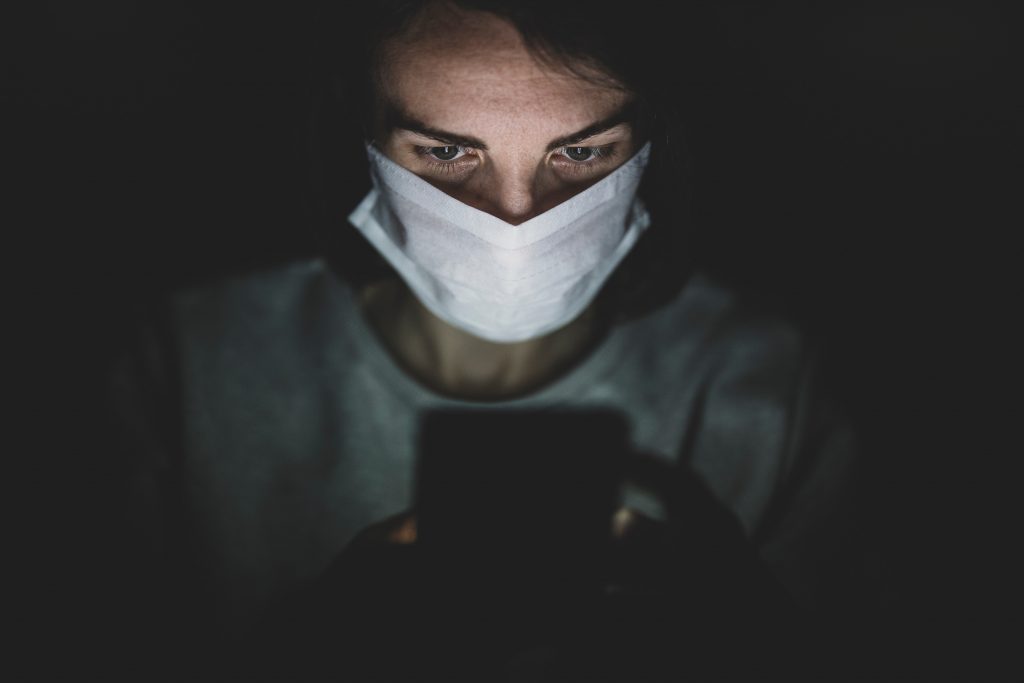7 Signs of Health Anxiety (Hypochondria)

Hi there Psych2Goers, this is a disclaimer that this article is for informative purposes only. It is not intended to treat or diagnose any condition. If you’re struggling, please reach out to a qualified mental health professional or healthcare practitioner.
Health is something that we all should be concerned about. Usually, we want to make sure we’re taking care of our bodies and check in with medical professionals if something is off. However, what if our concern is way out of proportion? What if you fear that small ailments are actually much bigger problems, but are not? Health anxiety, otherwise known as hypochondria is the intense fear of developing a health condition. To better understand what hypochondria is, in this article, we’ll be looking at eight different signs.

1. You Constantly Worry About Developing a Health Condition
The biggest sign of hypochondria is an excessive, constant, and encapsulating fear that you have a health problem, or that you will develop one. This fear can be triggered by an unusual bodily sensation (like a sore throat, or a growling stomach), or simply hearing about a disorder and thinking you have it. These feelings can worsen with age and as a whole, make it difficult to live a normal life (Mayo Clinic 2018).

2. You Constantly Self-Monitor Yourself for Symptoms
Since hypochondria causes you to worry about your health, you may find yourself constantly checking yourself for symptoms of a condition. You may be looking for specific symptoms, especially if you have a family history of it. For example, you may check yourself for lumps in certain parts of your body and become extremely distressed if you find something seemingly out of the ordinary – which in most cases is actually nothing of concern. You constantly doubt yourself and look for ways to prove/disprove your “symptom” (Psychology Tools 2020).

3. The Internet Is Your Worst Enemy
If you happen to notice something unusual about yourself, you may find yourself turning to the internet for answers and usually are horrified by the result. While sites like WebMD or Mayo Clinic are very helpful, they can also trigger some irrational ideas. Maybe you have a sore in your mouth that’s nothing more than a canker sore, but you’re led to believe that it may be mouth cancer. The internet can make a small, normal problem bigger than it actually is as it tries to capture the wide scope of possibilities, no matter how rare it can be. Even if you know that what you have isn’t serious, you may be plagued with the question “what if?” (Psychology Tools 2020).

4. You Take Extreme Preventive Measures to Avoid Getting Sick
While it’s normal to want to prevent getting sick, with hypochondria, you may take this to an extreme. You might find yourself avoiding going out and participating in situations that you could catch an illness from. Similarly you may be extremely health conscious with your diet and physical activity. It’s also possible that you will avoid situations that remind you of past events, like staying away from hospitals (Mayo Clinic 2020).

5. You Avoid Doctors, or Visit Them Frequently
Hearing that you have a life changing illness is extremely frightening. You may suspect you have a condition, but avoid the doctor because you’re too afraid to find out. On the other side, you may constantly visit a healthcare provider so you can find out right away. You may also find yourself distrusting your doctor; maybe you think they’re overlooking something or made a mistake. Additionally, you might undergo extensive testing that come back negative, but fear that they may be wrong, or go in and get retested later on (Mayo Clinic 2020).

6. You Worry That Minor Oddities Are Something Bigger
Life can be full of unexpectedness. You may have a mild stomach ache without a known cause and think it’s something more serious like appendicitis despite the major difference between the two. Generally your symptoms are much more minor than what the actual condition would feel like. It can be overwhelming to deal with these feelings, to the point that you find it hard to focus on anything else. You may constantly self-check yourself to see if the problem is still there or getting worse which only makes you doubt yourself more (Harvard Health Publishing 2020).

7. Your Anxiety Interferes With Other Aspects of Your Life
Whether you’re spending too much time at the doctor or limiting yourself from partaking in certain activities out of fear, hypochondria is exhausting. You are in a constant cycle of worry and can never be sure if you’re healthy or not. Sometimes you may cycle through different conditions; one day you think you have a heart problem, then later you think you have a neurological one. Family history only makes it worse with you ruminating about the condition that only gets worse as you get older (Cirino 2018).

While we absolutely should be concerned about our health, there’s a point where our fears become too much; we can spend so much time worrying about minor issues that we miss out on the things we like doing. If you suspect you have hypochondria, please reach out to a qualified mental health professional. Getting in contact with the right person can be a great first step to improving your life. What are your thoughts on hypochondria? Can you relate to any of these points? What else have you noticed? Let us know in the comments!

References:
- Cirino, E. (2018, September 29). Health Anxiety (Hypochondria). Healthline. www.healthline.com/health/health-anxiety
- Harvard Health Publishing. (2020, April 15). Always worried about your health? You may be dealing with health anxiety disorder. Harvard Health. www.health.harvard.edu/mind-and-mood/always-worried-about-your-health-you-may-be-dealing-with-health-anxiety-disorder
- Mayo Clinic. (2018, June 6). Illness anxiety disorder – Symptoms and causes. www.mayoclinic.org/diseases-conditions/illness-anxiety-disorder/symptoms-causes/syc-20373782
- Psychology Tools. (2020, November 14). Health Anxiety. www.psychologytools.com/self-help/health-anxiety/



Responses